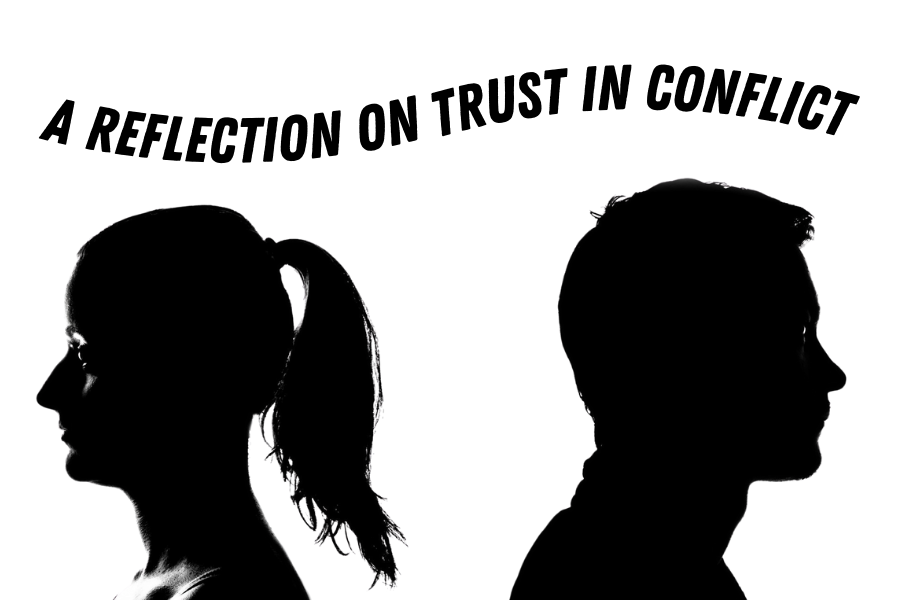A Reflection of Trust in Conflict
March 27, 2024

Written by Kim Drake, Institute for Conflict Management '23
For the past decade, I have worked with nonprofits and groups of community leaders who provide essential services to our neighbors. It is a rare thing to encounter someone in this field who does not genuinely want to make a difference in the lives of others. Why then, do so many people and groups find it difficult to work together to solve our biggest problems?
It could be money, it could be resources, it could be skills, and it could be research. As someone who helps to lead these groups toward their goals, I have found that it is most often a question of trust and the ability to manage conflicting interests and perspectives. Such simple, intangible things – trust and perspective – but absolutely essential to anything we do together.
In one of the ICM courses, our professor talked frequently about grace and mercy. How can we bring grace and mercy to every conversation? How can we react to each other with these as our basic assumptions? These were not words that I had ever associated with my work before. I thought of myself as a process manager and a problem solver. However, as I thought about the times I was most positively impactful to a group, I realized that it was times that I modeled and encouraged grace and mercy. The ability to give people the benefit of the doubt and to listen with compassion and care.
We talked frequently in mediation and negotiation about the notion that solutions, like life, are not a zero-sum game. One person does not need to lose in order for another person to win. It is not pie. We will not run out of slices. This is certainly applicable when considering a business negotiation or a family custody dispute – but what if we considered it also when addressing big community issues such as chronic poverty, equity, affordable housing, and food insecurity? Helping to support my neighbor’s journey out of poverty does not take away from my economic prosperity or potential. Supporting a food system that brings healthy and affordable nutrition across our community does not limit my grocery or dining options. Helping people to see the magnitude of options moves the discussion out of competition and into imagining what could be possible.
Our most intractable problems, whether personal, professional, or even global all happen at the same pace: the speed of trust. Trust may look different in each scenario, but the underlying impact is the same. Managing conflict isn’t about winning and it isn’t just about reducing friction. It is also about the amazing ability to create opportunities for change when people approach challenges with intention, the ability to recognize and navigate differences, and a desire for all parties to achieve their own versions of success.
I can only speak for myself, but I can say, without a doubt, that skills and experience are only a part of the necessary toolkit for facilitators and community builders. Every interaction that gets us closer to success starts with grace and mercy.
Learn more about Lipscomb's Insititute for Conflict Management
College of Leadership and Public Service News